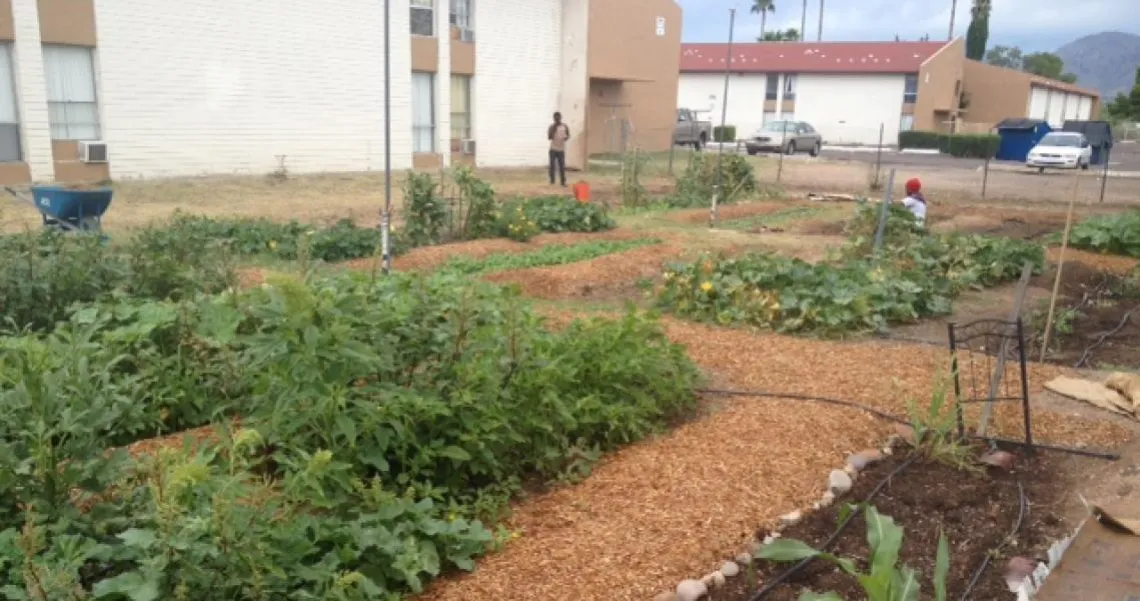
Raised-bed gardens in Tucson. Photo by Ashley Erbe.
Lead CCASS Contact: Stephanie Buechler
Through this project, Stephanie Buechler, faculty member in the Udall Center for Studies in Public Policy and the School of Geography and Development, and Daoqin Tong, until recently also a faculty member in SGD and now a faculty member in Geography at ASU, are examining how community gardens and backyard gardens can address food access and security problems in Tucson, Arizona, in areas identified as “food deserts,” which are in low-income neighborhoods and located more than a mile from the nearest grocery store. Funded by the Agnese Nelms Haury Program in Environment and Social Justice, the team works with local non-profit organizations to provide necessary raised bed technologies for a new community garden for the low-income disabled, bolster resources such as efficient irrigation technologies for existing community gardens, and create a network among these organizations in support of the gardens. Tucson is ranked as the sixth-poorest U.S. metro area.
The project also seeks to "green" Tucson in the face of climate change. The gardens and their surrounding vegetation work to combat the urban heat island effect, in which areas with dense concentrations of asphalt and buildings are warmer than surrounding areas with more natural landscapes. The project includes the planting of native vegetation to cool areas around the gardens and to provide habitat for pollinators, and includes the installation of passive rainwater harvesting systems, and gardener education.

